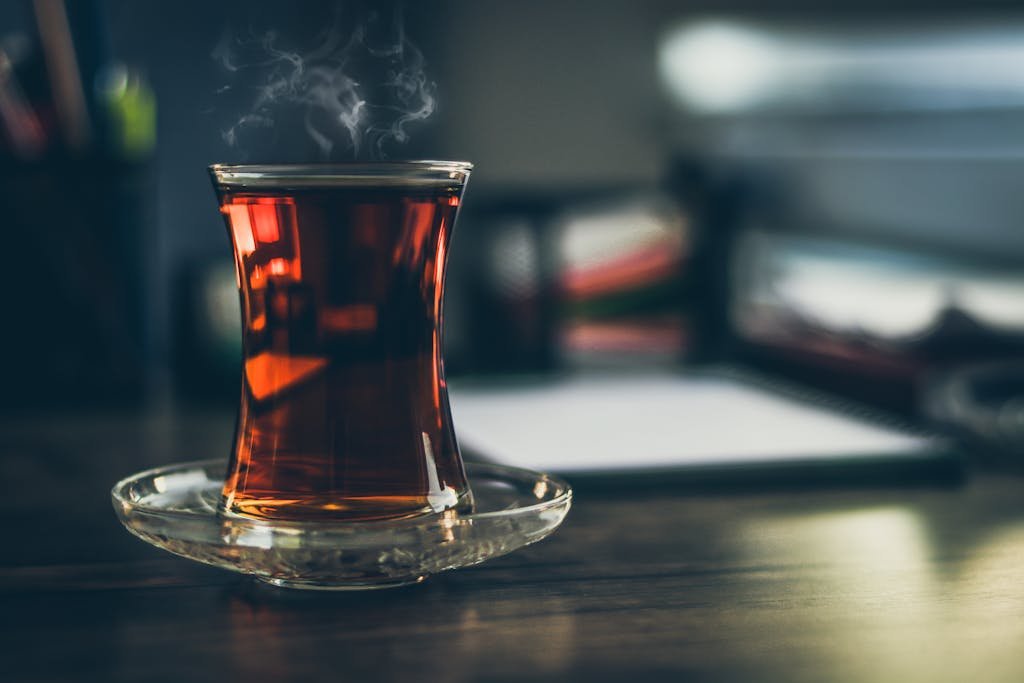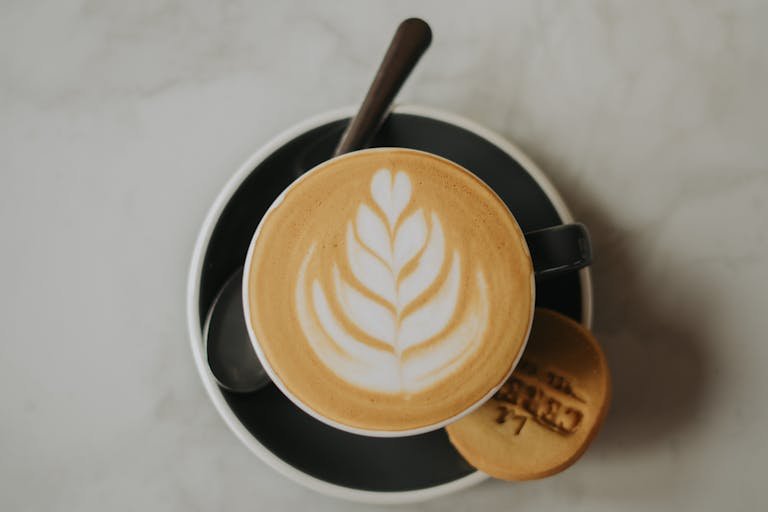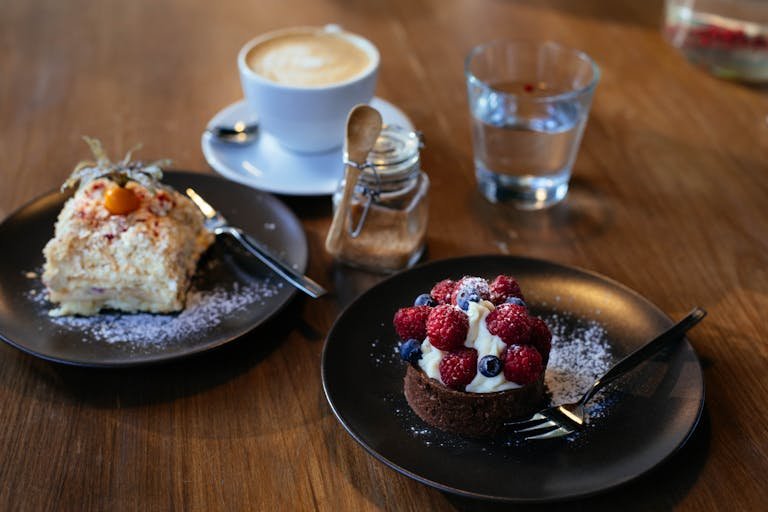Chai latte or chai tea? A conundrum that often creates a delightful dilemma for tea lovers and coffee enthusiasts alike. As we embark on this aromatic journey, let’s unravel the mystery of chai, exploring its deep cultural roots, invigorating flavors, and the often-overlooked health benefits. Whether you’re a seasoned chai aficionado or someone just discovering the world of spiced teas, this guide aims to elevate your chai experience and empower you with a newfound appreciation for this ancient elixir. So, grab your favorite mug, and let’s dive into the captivating tale of chai.
Unraveling the Mystery of Chai Tea
A Rich History and Cultural Significance
Chai tea, often simply referred to as chai, has a rich history that dates back thousands of years. Originating in India, chai has become a staple in households and across various cultures. The word “chai” means “tea” in Hindi, and it is typically made using a blend of black tea, milk, and a mix of aromatic spices such as cardamom, cinnamon, ginger, cloves, and black pepper.
This spiced tea was traditionally consumed as a medicinal drink in ancient Ayurvedic practices. Its introduction to Western culture came much later, during British colonial times, when the British adopted and adapted the beverage, leading to the global popularity of chai in its many forms.
Types of Chai Tea
There are several varieties of chai tea, each offering a unique flavor profile. Here are some popular types:
- Masala Chai: The most common type, featuring a robust blend of spices and black tea.
- Green Chai: A lighter version made with green tea instead of black tea, offering a milder taste.
- White Chai: Made with white tea leaves and a more delicate spice mix, resulting in a subtler flavor.
- Herbal Chai: Caffeine-free and made with a variety of herbs and spices, perfect for those avoiding caffeine.
Each type of chai can be brewed using different methods, from traditional simmering on the stovetop to more modern approaches using chai concentrate or tea bags.
The Health Benefits of Chai Tea
Chai tea is not only delightful to drink but also offers numerous health benefits. The key ingredients in chai are rich in antioxidants and anti-inflammatory properties, contributing to overall well-being. Here are some notable benefits:
- Digestive Aid: Ginger and black pepper in chai can help improve digestion and alleviate nausea.
- Anti-Inflammatory: Cinnamon and cloves have anti-inflammatory properties that can reduce inflammation and pain.
- Heart Health: Black tea is known to improve heart health by lowering cholesterol levels and reducing blood pressure.
- Antioxidant Boost: The spices and tea leaves in chai are rich in antioxidants, which help fight free radicals and boost the immune system.
By incorporating chai tea into your daily routine, you can enjoy these health benefits while savoring a delicious and comforting beverage.
Read Also: Coffee Concentrate Magic: Instant Energy Boost
Chai Tea vs. Chai Latte: A Comprehensive Comparison
Taste Profiles
The primary difference between chai tea and chai latte lies in their taste profiles. Chai tea is typically brewed with water and offers a more robust and spiced flavor. On the other hand, chai latte is made with steamed milk, resulting in a creamier and sweeter taste. The addition of milk in chai latte mellows the spices, making it a popular choice for those who prefer a less intense flavor.
Nutritional Content
When comparing the nutritional content of chai tea and chai latte, there are significant differences:
- Chai Tea: A simple cup of chai tea made with water contains minimal calories and carbohydrates, making it a healthy choice for those watching their intake.
- Chai Latte: Chai lattes often contain added sugars and milk, increasing the calorie and carbohydrate content. However, they can be made healthier by using alternative milk options such as almond or oat milk and reducing the amount of sweetener.
Caffeine Levels
Both chai tea and chai latte contain caffeine, but the levels can vary:
- Chai Tea: Typically contains around 40-50 mg of caffeine per cup, depending on the type of tea used.
- Chai Latte: The caffeine content can be similar to chai tea, but it may be lower if the latte is diluted with more milk.
For those looking to reduce their caffeine intake, herbal chai tea is a great option as it is caffeine-free.
Making the Perfect Cup of Chai

Step-by-Step Guide
Creating the perfect cup of chai at home is a rewarding experience. Here’s a detailed guide to get you started:
- Gather Ingredients: You will need black tea leaves, spices (such as cardamom, cinnamon, ginger, cloves, and black pepper), milk, and the sweetener of your choice.
- Simmer Spices: In a saucepan, add water and your chosen spices. Bring to a boil and then simmer for 5-10 minutes to release the flavors.
- Add Tea Leaves: Add black tea leaves to the simmering mixture and continue to simmer for another 3-5 minutes.
- Strain and Serve: Strain the tea into a cup, add milk and sweetener to taste, and enjoy!
Specialty Additions
To personalize your chai, consider these variations and additions:
- Different Spices: Experiment with nutmeg, star anise, or fennel seeds for unique flavors.
- Sweeteners: Try honey, maple syrup, or agave nectar instead of sugar.
- Alternative Milk: Use almond, soy, or coconut milk for a dairy-free option.
By tailoring your chai to your preferences, you can create a truly unique and enjoyable drink.
The Global Love for Chai
Chai in Different Cultures
Chai tea has transcended its Indian origins and become a beloved beverage worldwide. Each culture has its unique take on chai, incorporating local ingredients and brewing methods. For example, in the Middle East, chai is often flavored with rosewater or saffron, while in East Africa, it may include additional spices like cardamom and cloves.
The Future of Chai
Chai continues to evolve, with new trends and innovations emerging. From chai-flavored desserts to chai-infused cocktails, the possibilities are endless. As more people discover the joys of chai, its popularity is set to grow even further.
Read Also: Roast Your Coffee Beans at Home: A Flavorful Journey
Final Words
Chai tea is more than just a beverage; it’s a cultural experience, a health elixir, and a culinary adventure. By understanding the differences between chai tea and chai latte, exploring the health benefits, and learning how to make the perfect cup at home, you can elevate your chai experience to new heights.
Whether you’re a tea lover, a coffee enthusiast, or someone seeking a healthier lifestyle, chai offers something for everyone. Try a new chai recipe today and share your feedback with us. We would love to hear about your chai adventures and how this ancient elixir has enriched your life. Enjoy your chai journey!






